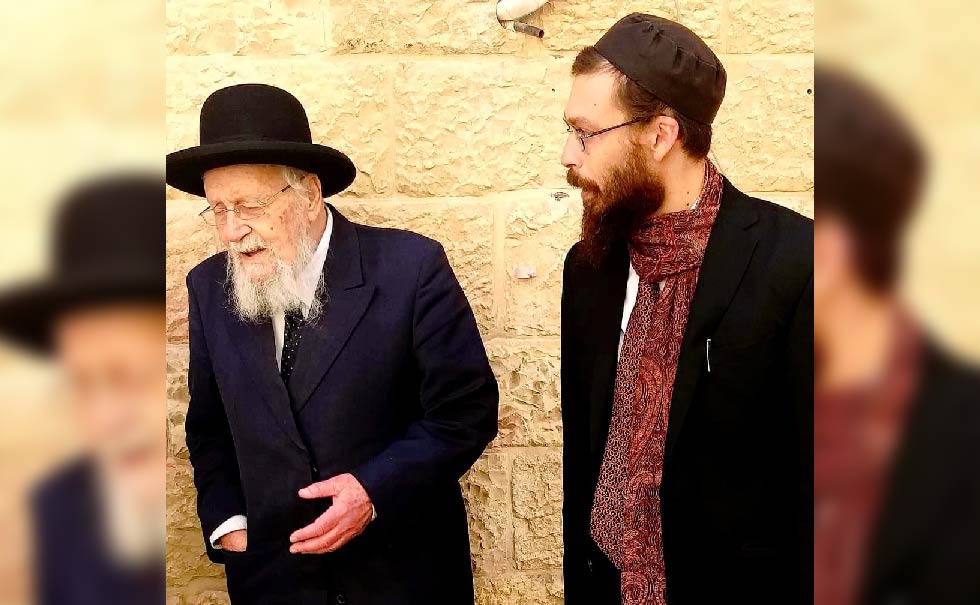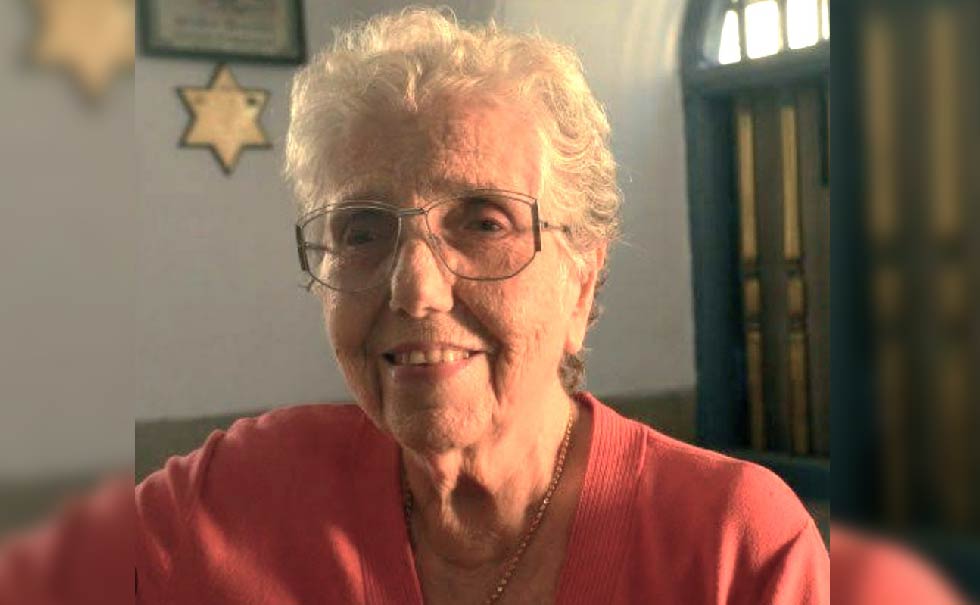Bereshit
[1]The Earth was astonishingly empty and chaotic, darkness upon the
surface of the deepest places.
(The world without Torah. Without morality and justice everything is
only Chaos – what separates all of us from the primitive barbarian is
only culture, etiquette and morality)
[2]The spirit of God hovered above the waters.
(Even God seemed far away due to lack of order, it is only within the
context of a structure we are able to thrive and to serve God fully)
[3]And God spoke saying, let there be light – and there was light.
God saw that the light was good, and he separated between the light
and the darkness.
We live in a world of darkness and Chaos, arguably the greatest myth
of our times is the fallacy of moral equivalency:
We all want to believe that all humans equally desire to live, to
flourish, to respect others provided we are respected and to have the
ability to choose our lives for ourselves and live in peace.
Provided we all believe in these ideas and ideals and live according
to the law of the land, we can all live together: regardless of the
differences between cultures, religions, races and political beliefs.
But that is unfortunately only a dream, not the reality – in fact
there exist today those who would enjoy hurting, killing raping and
destroying us because we are not like them.
There is no small number of them, they do not have a specific
religion, race or creed:
“Not only one enemy rose up to try to destroy us, but in every
generation, they rise up to try to destroy us. And the Holy One
Blessed
be He delivers us from their hand.”[4]
Human, and in particular Jewish history tells a very different
narrative to our preferred version, it speaks of terrible empires,
political groups, religions, and movements that embody true attributes
of evil.
In some sense, to the western intellectual “evil” has become
metaphorical, a device used in fiction and narrative to describe our
fear of man’s most primitive nature and our most hidden and
existential fears.
But our history says otherwise, we have faced true evil before it
comes under the banner of its own self-righteous pretext to destroy,
murder, rape and in general unleash carnage in the name of their
beliefs.
Often, although not always, the target of such evil has been the
Jewish people. In each generation the struggle looks different, but
our plight and fate is always met with indifference and often we are
blamed as the culprits – whether that be during the crusades where we
apparently deserved the torture for not being Christians, or during
Communism for not being atheists – or for being not whatever the evil
requires us to be, we are always accused of being the 5th column, the
issue that prevents the unity or success of any agenda.
This situation is terrible and awful to behold in Israel, and words do
not really convey the human suffering currently occurring in the
middle east as the actions of terrorists have created a storm that
threatens to draw the entire region into war and instability.
We have just been through the process of Rosh Hashanah and Yom Kippur,
the process of Teshuvah and the promise of leaving behind our own
unique personal issues and growing towards our betterment and
perfection. Now we enter the year with the first Parsha of the Torah
in deep crisis – the forces of evil have returned, the nation is under
fire, hostages are hidden, families are mourning.
We begin the Hebrew year with serious questions, who are we, where are
we and our people going, how has God allowed such atrocities to befall
us, what is the way forward and what do we as individuals do?
Some are calling for specific Tehillim[5] and for other responses
based on tradition and mysticism, the Tanach[6] in many instances
where Hashem is angry with us and brought terrible judgements, His
response is for Teshuvah – to return from our foolishness and be true
to our national identity.
Again and again throughout the Tanach, we find our people falling into
emulation of the nations, into idolatry and into secularism.
The obvious issue in 2023 is that almost any attempt to draw people
away from liberalism and secularism and into Teshuvah is fraught with
resentment and difficulty, how can we dare to suggest that our
response should be to abandon the systems that grant us so much
comfort and personal freedom?
The answer is that personal freedoms have come at the expense of
collective responsibility, our quest for self-determination has not
solved the great inequalities and social issues of the world, rather
only underscored the chasm between the fortunate and the greater
population of those who lack access to basics – the very definition of
our democratic system, rights and privileges is not a Torah ideal,
rather the Torah is one of obligations on both a personal and national level.
We have been divided as a people for too long, between left and right,
secular and religious, Orthodox and Reform – this is the Teshuvah that
needs to happen, we have to drop these ridiculous labels and become a
people again:
Every people have differences, every people have disagreements and
subjects where they differ.
The key is that in the darkness we are able to find the light – we
watch as Secular, Religious, Chassidic, Sephardic and Ashkenazi Jews
stand together and begin on mass to volunteer and risk their lives for
each other, we see people donating their time, money, talents and
resources to a higher cause, to a national need at a time of
collective peril. As incredible and inspiring as that is, we also
cannot lose sight of the collective values that bring us together: The
Torah.
From hundreds of countries and backgrounds we are united by a national
connection to each other that bridges any time, distance or ethnic
divide – it is the only thing that collectively belongs to all of us
as a people, it is the very reason that the land of Israel is both
sacred and important in terms of our collective identity.
We are not only under physical threat, but also the attack is also
psychological and existential – we are bombarded with the very worst
images and stories imaginable that take a direct hit on our morale and
ability to remain inspired and focus on the light.
If this is Bereshit, the beginning of the year to come, then let us
give a personal and collective cry of Teshuvah to be the very best
versions of ourselves that we can muster in the darkness – to escape
the self-obsession of the western paradigm, the idol of autonomy and
the illusion that evil does not exist.
What more can it possibly take for us to return to God if not this
moment, if not these unspeakable horrors and the obvious need to be
united and strong?
What can awaken us if we sleep through?
these terrible alarms and regress to dejection and despair? It is upon
all of us to do whatever we can practically, spiritually and
emotionally for each other, if these events cannot bring us to
Teshuvah then nothing can, if we cannot see beyond our own struggles,
pain and prayers and realize that we are one then we are lost,
conversely if we can our people can use this tragic moment to have a
unity that was never before considered possible.
In our next Parsha of Noach[7] the word in Hebrew for violence is
“Hamas” it is also mentioned in the description of the end of the
torment of exile and the rebuilding of the temple, may it come speedily[8]:
The cry “Violence!”
Shall no more be heard in your land,
Nor “Wrack and ruin!”
Within your borders.
And you shall name your walls “Victory”
And your gates “Renown.”
Although wars are fought with weapons, they are ultimately won through
ideas and values, let us stay true to ourselves, let us only add to
this year: more Mitzvot, more prayers, more positive action, more
kindness and more tolerance for those around us.
We are all in pain, all in shock and all in disbelief of what has
happened – we are in a unique position to transmute darkness to light,
pain to redemption and fear to inspiration.
[9]Am Yisrael Chai!
Rabbi Jonathan Goldschmidt 2023 ©
________________________________
[1] Bereshit/Genesis: 1:2
[2] Ibid: 1:2
[3] Ibid: 1:3
[4] Haggadah of Passover
[5] The Book of Psalms
[6] Torah, Nevim (Prophets) and Ketuvim(Writings) – collectively known
as the Jewish Bible.
[7] Bereshit/Genisis: 6:11 & 6:13 as well as in many other contexts
throughout the Tanach
[8] Isaiah 60:18
[9] Bereshit/Genesis: 45:3




